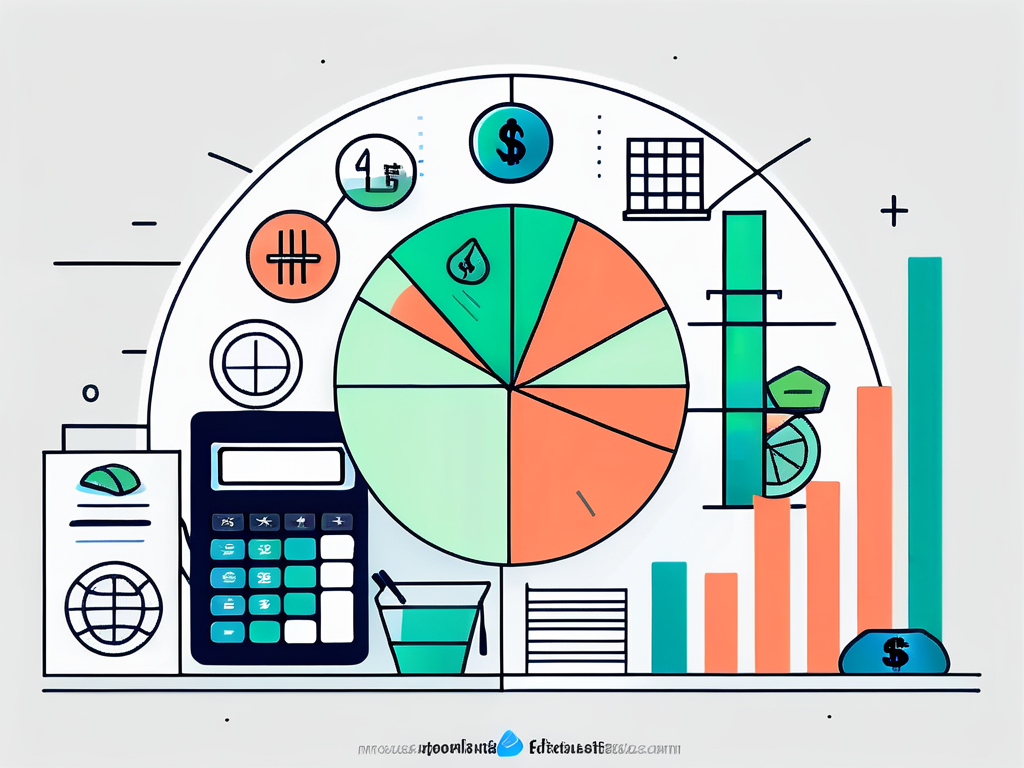Welcome, dear reader, to the world of gross income, where numbers dance and taxes prance. It’s a place where the figures are big, the stakes are high, and the accountants… well, they’re just accountants. But don’t worry, we’re here to guide you through this numerical jungle with a smile on our faces and a calculator in our hands.
Before we dive into the deep end, let’s make sure we’re all on the same page. Gross income, in the simplest of terms, is the total income earned by a business before any deductions are made. It’s like the raw dough before you start adding the toppings to your financial pizza. Now that we’ve got that covered, let’s roll up our sleeves and get down to business (tax services, to be precise).
The Definition of Gross Income
So, what exactly is gross income? Well, imagine you’re a business. You’re selling products, providing services, maybe even renting out property. All the money you make from these activities? That’s your gross income. It’s the total amount of money you’ve earned before Uncle Sam takes his cut. It’s like the total number of cookies in the jar before your kids get their hands on them.

But wait, there’s more! Gross income also includes other sources of income like interest, dividends, and royalties. So, if you’re a business with a diverse portfolio, your gross income could be coming from a variety of places. It’s like a financial buffet, and you’re invited to feast.
Calculating Gross Income
Now that we know what gross income is, how do we calculate it? Well, it’s as easy as adding up all your sources of income. That’s right, just add them up. It’s like counting sheep, but instead of falling asleep, you’re getting a clearer picture of your financial health.
But remember, we’re only counting the income before any deductions. So, if you’ve made any payments for business expenses, taxes, or anything else that might reduce your income, don’t include them in this calculation. We’re looking for the gross, not the net. It’s like weighing yourself before and after a meal. We want the ‘before’ weight.
Understanding Gross Income
Understanding gross income is crucial for any business. It’s the starting point for calculating your taxable income, which is what Uncle Sam is interested in. It’s like the first step in a dance routine. If you get it wrong, the whole performance could be off.
But it’s not just about taxes. Knowing your gross income can also help you understand how well your business is doing. It can give you a snapshot of your financial performance and help you make informed decisions about the future. It’s like a crystal ball, but with numbers instead of vague predictions.
The Role of Gross Income in Business Tax Services
Now that we’ve covered the basics of gross income, let’s talk about its role in business tax services. In the world of taxes, gross income is like the main character in a movie. It’s the star of the show, the one everyone is interested in.
Why? Because it’s the starting point for calculating your taxable income. It’s the number that all your deductions, credits, and exemptions are based on. In other words, it’s the foundation of your tax return. It’s like the dough in a pizza. Without it, you’ve just got a pile of toppings.
Deductions from Gross Income
One of the main roles of gross income in business tax services is to serve as the basis for deductions. These are expenses that you can subtract from your gross income to reduce your taxable income. It’s like a discount on your tax bill.
Common deductions include business expenses, depreciation, and interest on business loans. But remember, not all expenses can be deducted. Only those that are necessary and ordinary for your business can be subtracted from your gross income. It’s like shopping with a coupon. You can’t just use it on anything in the store. It has to be for a specific item.
Taxable Income and Gross Income
After you’ve subtracted your deductions from your gross income, what you’re left with is your taxable income. This is the amount of income that’s subject to tax. It’s like the net weight of your luggage after you’ve removed all the unnecessary items.
The rate at which your taxable income is taxed depends on the tax bracket you fall into. The more income you earn, the higher your tax bracket, and the higher the rate at which your income is taxed. It’s like climbing a ladder. The higher you go, the more you have to pay.
Conclusion
And there you have it, folks! A comprehensive, hilarious, and hopefully enlightening guide to gross income and its role in business tax services. Remember, understanding your gross income is the first step towards understanding your tax obligations. It’s like knowing the rules of the game before you start playing.
So, the next time you’re looking at your financial statements, don’t just glance over the gross income figure. Take a moment to understand what it represents and how it affects your tax situation. It might just save you a lot of headaches (and money) in the long run. And remember, when it comes to taxes, it’s always better to be in the know than in the dark. It’s like carrying a flashlight in a haunted house. It won’t make the ghosts go away, but at least you’ll see them coming.


